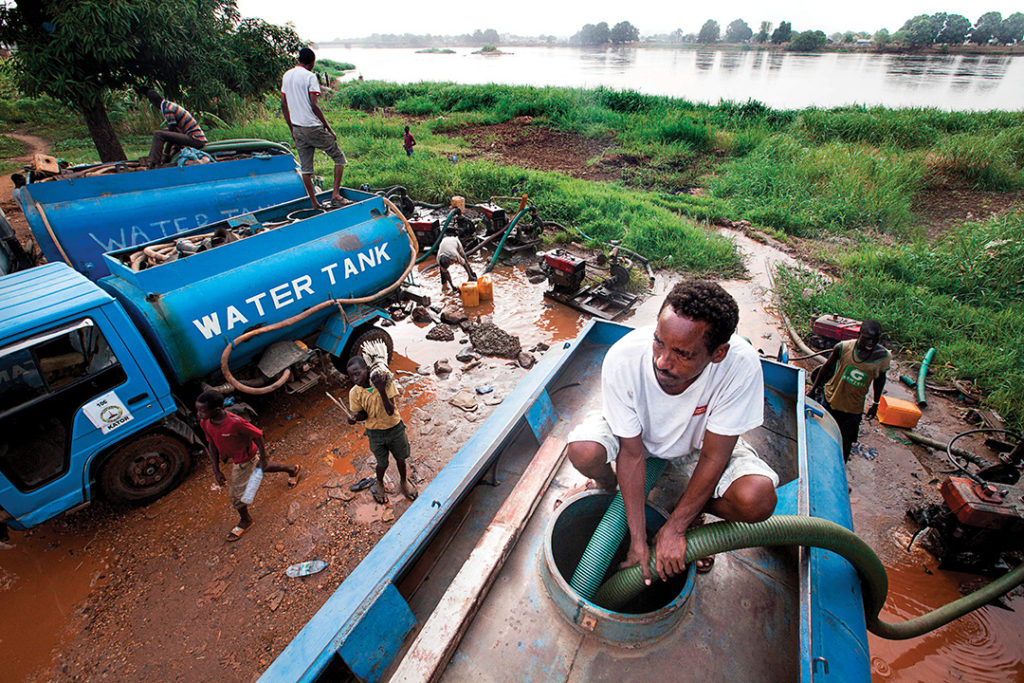WORLD BANK
A social safety net program in South Sudan that temporarily provides income to poor and vulnerable households in Juba is being expanded to six other areas of the country.
The public works component of the World Bank’s Safety Net and Skills Development Project is operating in Juba and includes road repairs. It is benefiting 6,000 households, of which an estimated 70 percent are headed by women.
The public works program has transferred close to $1.6 million as income for 652,049 total person-days worked, to about 85,000 people from 10,865 households.
Cash transfers provide increased purchasing power for basic necessities, including food, clothes, medicines and home improvements. They have also helped households cover children’s school fees and uniforms.
“People’s lives are improving; they have nutritious meals to eat, and their human capital is being improved through continued investment in health and education,” said Dena Ringold, practice manager of the Bank’s Social Protection and Jobs Global Practice.
Improvements in community assets have increased access to services and mobility due to better road networks and reduced crime. Some workers have used their money to set up small-scale businesses, such as tea kiosks and vegetable stands.
Child care centers at work sites have allowed mothers with young children and the elderly who take care of them to participate and earn wages.

